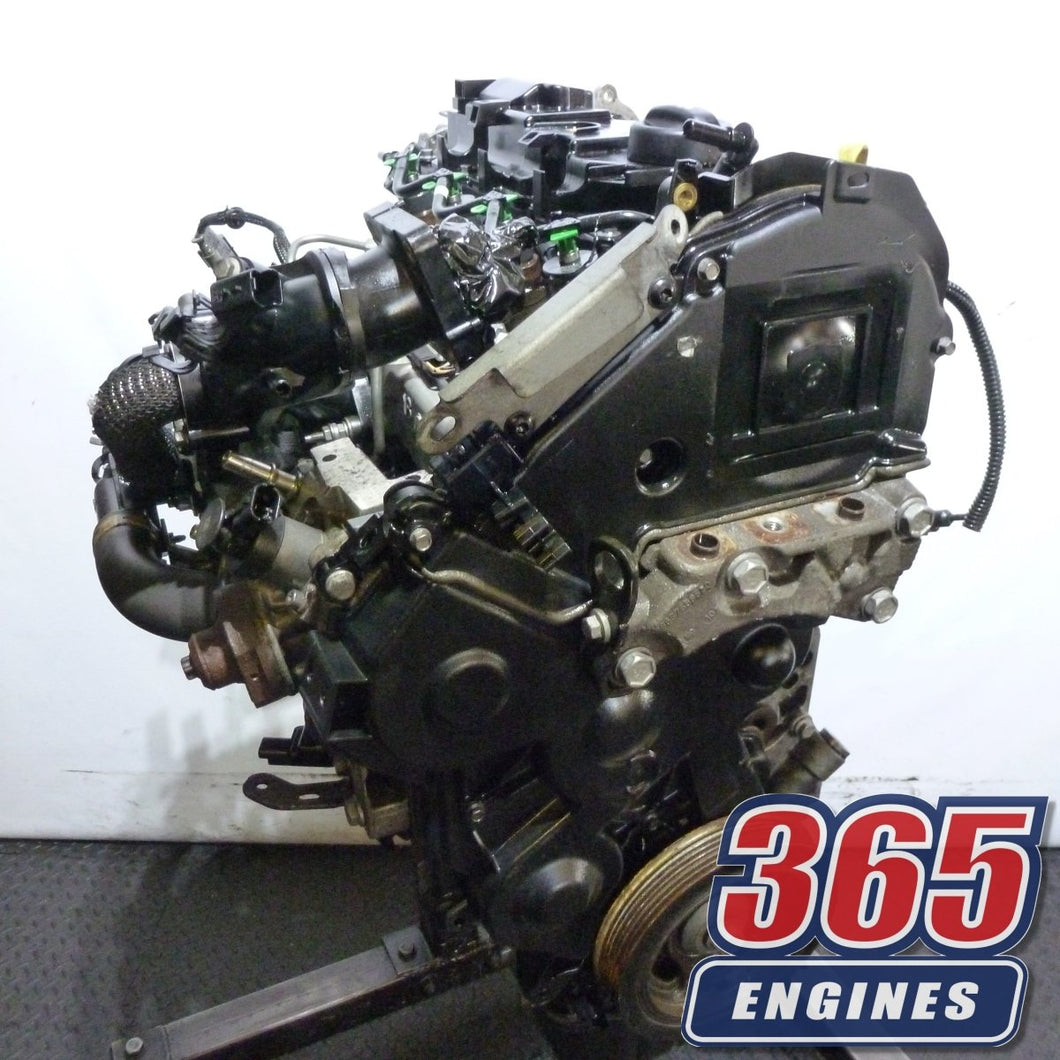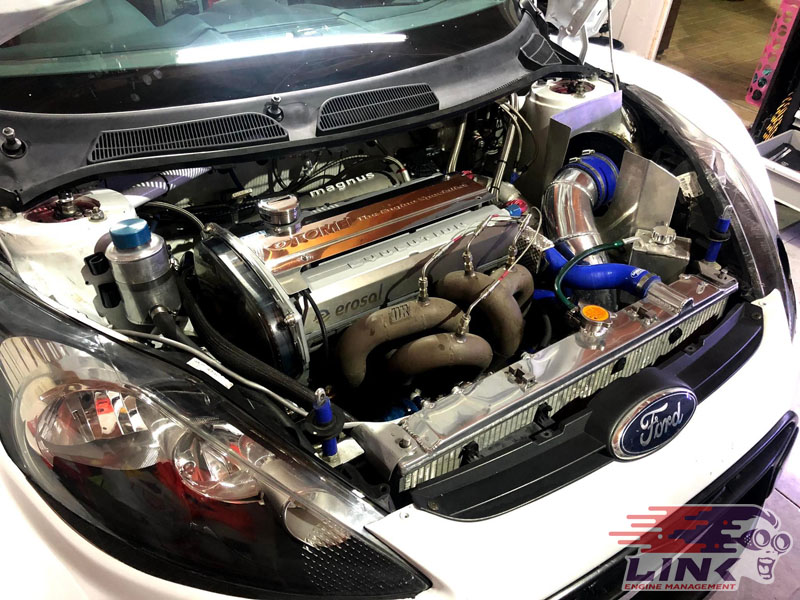Troubleshooting Ford Fiesta Engine Problems: What You Need to Know
Troubleshooting Ford Fiesta Engine Problems: What You Need to Know
Blog Article
The Future of Engines: Technologies Driving Lasting Power Solutions
As the automobile industry navigates the essential transition towards sustainability, the future of engines is significantly specified by groundbreaking technologies. Electric engine innovations, alongside appealing growths in hydrogen fuel cells and biofuels, are reshaping the landscape of power remedies. The emergence of hybrid systems further complicates this evolution, presenting both chances and obstacles to lower exhausts effectively. Combined with the integration of fabricated knowledge in engine design, these technological strides elevate important concerns regarding their long-term stability and effect on conventional standards. What might this suggest for the market and consumers alike?
Electric Engine Developments
The evolution of electric engine developments represents an essential change in the aerospace and automobile sectors, driven by the urgent requirement for lasting choices to fossil fuels. This change is defined by significant improvements in battery innovation, power electronics, and electric motor layout, which collectively enhance the efficiency and efficiency of electric engines.
Recent advancements have actually resulted in the production of lighter, extra energy-dense batteries, such as lithium-silicon and solid-state batteries, which assure longer ranges and much shorter billing times. Furthermore, improvements in electric motor effectiveness, such as using irreversible magnets and progressed cooling down systems, enable electrical engines to operate properly under differing conditions. These improvements not just improve automobile efficiency however likewise add to a decrease in general energy intake.
Furthermore, the integration of advanced software application algorithms has maximized energy administration in electrical cars, permitting regenerative stopping and predictive billing strategies. As suppliers increasingly welcome electric propulsion, the aerospace and automobile markets are seeing a paradigm change towards greener modern technologies. This development not just fulfills regulative demands however additionally straightens with consumer choices for eco-friendly transportation solutions, solidifying electric engines as a cornerstone of future lasting flexibility.
Advancements in Biofuels
As the aerospace and automobile markets significantly focus on sustainable power resources, innovations in biofuels become a corresponding remedy to electric engines. Biofuels, derived from natural products such as plants, waste, and algae, provide an innovative method for decreasing greenhouse gas exhausts and dependence on nonrenewable fuel sources.
Current research has actually concentrated on improving the effectiveness and sustainability of biofuel production. Second-generation biofuels utilize non-food feedstocks, minimizing competitors with food supply and lowering ecological impact. Moreover, advancements in synthetic biology have actually made it possible for the design of microorganisms to generate biofuels more efficiently, bring about higher returns and lower production costs.
Furthermore, the growth of drop-in biofuels enables smooth combination into existing infrastructure, making it possible for a smoother shift for sectors commonly depending on nonrenewable fuel sources. ford fiesta engine. These fuels can be utilized in current engines without modifications, promoting their fostering throughout different sectors
Investments in biofuel technology, along with encouraging plans, are vital to drive advancement and scalability. As the worldwide area seeks to fight environment change, biofuels offer a pragmatic, immediate remedy that lines up with the overarching goal of sustainability in transportation and aeronautics.
Hydrogen Gas Cell Innovation
An expanding number of researchers and firms are exploring hydrogen fuel cell innovation as a viable alternative to conventional power sources in transportation and power systems. This modern technology transforms chemical energy from hydrogen into electrical power with an electrochemical reaction, with water as the only result, making it an eco-friendly alternative.
The core of hydrogen gas cells is the gas cell stack, where hydrogen particles are split into electrons and protons. The flow of electrons produces power, while protons move via view publisher site a membrane to integrate with oxygen from the air, forming water. This process results in high effectiveness and low discharges, placing hydrogen fuel cells as a vital player in the shift to lasting energy.
Substantial improvements have been made in boosting the toughness and performance of gas cells, together with decreasing expenses via ingenious manufacturing strategies. Moreover, the development of hydrogen manufacturing techniques, such as electrolysis powered by renewable resource resources, enhances look at these guys the sustainability of the general system. As infrastructure for hydrogen refueling expands and manufacturing approaches end up being more effective, hydrogen gas cell innovation holds great assurance for decarbonizing different markets, including heavy-duty transportation and fixed power generation.
Hybrid Systems and Their Impact
Crossbreed systems stand for a significant evolution in sustainable engine technology, merging typical internal combustion engines with electrical propulsion to maximize energy performance and minimize exhausts (ford fiesta engine). This double approach allows vehicles to make use of both power sources, making it possible for better flexibility in energy consumption and decreasing reliance on nonrenewable fuel sources

In enhancement to ecological benefits, hybrid systems offer consumers a feasible shift towards fully electric automobiles. They ease array anxiety by combining the benefit of fuel with the advantages of electric propulsion, making them an eye-catching alternative for a larger target market. As suppliers buy hybrid modern technology, the growth of advanced battery systems and lightweight materials continues to boost efficiency. Generally, hybrid systems represent a crucial step towards attaining sustainable transport and resolving the why not check here immediate requirement for eco friendly power options.
The Role of AI in Engine Design
Leveraging sophisticated algorithms and artificial intelligence techniques, the vehicle industry is progressively incorporating expert system (AI) into engine layout procedures. AI enhances the effectiveness and efficiency of layout by assessing large datasets to recognize optimum arrangements and performance parameters. This capacity permits engineers to simulate various operating conditions and forecast engine behavior under multiple scenarios, dramatically reducing the moment and price related to standard prototyping methods.
Furthermore, AI promotes the development of innovative products and combustion processes tailored for sustainability. By optimizing gas effectiveness and minimizing emissions, AI-driven designs align with international efforts targeted at decreasing the carbon footprint of vehicle engines. Equipment learning formulas can additionally predict maintenance needs, resulting in improved reliability and long life of engine elements.
Additionally, AI contributes in the combination of electrification modern technologies, such as crossbreed systems, where it can maximize battery administration and power recuperation procedures. As the industry moves towards even more lasting power options, the function of AI in engine style comes to be progressively vital, driving advancement and boosting the performance of future engines. Ultimately, the cooperation in between AI and engine style advertises a brand-new age of smarter, cleaner, and extra reliable vehicle modern technologies.

Final Thought
In verdict, the future of engines is being formed by a merging of ingenious innovations that focus on sustainability. Electric engine improvements, biofuel developments, hydrogen gas cells, and hybrid systems collectively add to a significant decrease in emissions and environmental effect.
Electric engine improvements, alongside encouraging advancements in hydrogen gas cells and biofuels, are reshaping the landscape of power solutions. In addition, improvements in electrical motor effectiveness, such as the use of irreversible magnets and progressed cooling down systems, make it possible for electrical engines to operate efficiently under varying conditions. By maximizing fuel effectiveness and lessening exhausts, AI-driven designs straighten with international initiatives aimed at decreasing the carbon footprint of vehicle engines. As the market relocates towards more lasting power options, the duty of AI in engine layout comes to be increasingly vital, driving development and improving the efficiency of future engines. Electric engine improvements, biofuel growths, hydrogen fuel cells, and hybrid systems jointly add to a considerable reduction in exhausts and environmental effect.
Report this page